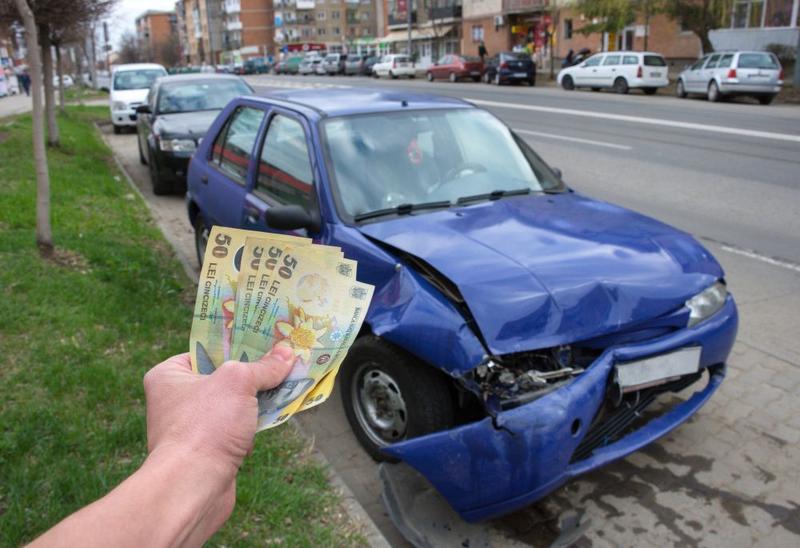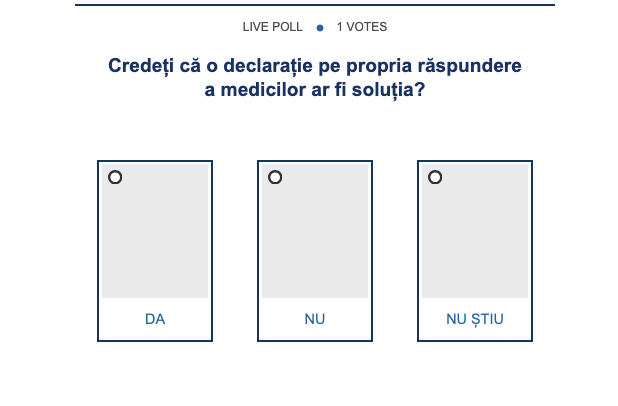Europeans are worried about the effects of the, the latest Eurobarometer poll indicates. The concern, reaching levels between 80 and 90% in all states, affects the economy on all levels, both today and in the future. On a personal level, 58% of the Europeans are pessimistic about the current situation and 56% are worried about the future.
In brief, the most important findings of the poll, according to the Eurobarometer summary:
- This anxiety, which is felt very strongly in all countries (between 80 and 90%) affects all levels of the economy: global, European and national. This relates as much to the present situation as to the future. This anxiety is not as predominant at the personal level (58% today, 56% tomorrow).
- Europeans are in favour of coordinated action to fight the crisis: Their diagnosis is clear: 44% of them believe that Member States reacted in an individual manner, while 39% believe they acted in a coordinated manner.
On the other hand, 61% believe that Europeans would be better protected if the Member States adopted a coordinated approach. This kind of approach is urgently called for by the EP who has taken a stand to this effect on numerous occasions.
- What actions should be taken at EU level?
The European Parliament has repeatedly declared itself in favour of different measures at Union level. These are largely supported by Europeans in the percentage points which vary from 66 to 71%: coordination of economic and financial politics; supervision by the EU in cases where public money is used to rescue financial institutions; surveillance of the activities of the most important international financial groups; the role of the EU at international level in regulating financial services.
- The euro: a protector?
This question on the role of the euro in mitigating the negative effects of the crisis was posed in all of the member countries of the Union. On average at a European level, the response proved negative. In fact, 44% of Europeans think that the euro has not mitigated the crisis as opposed to 39% who think that it has effectively mitigated this crisis, 17% did not know. Indeed, the results show that the perception of the euro varies considerably from one country to another. The detailed table (see p. 15) shows that 17 countries responded positively to the question, among which 13 are countries in the euro zone, 3 are countries which are obliged to adopt it and 1 country which refused to adopt it.
On the other hand, 8 Member States, 2 of which are founding members of the euro, are more inclined towards a negative response, and a last country regards both options as equal. Finally, it is shown that the last two countries to join the European Union in 2007 give a significant number of "don't know" answers, 51% for Bulgaria and 41% for Romania.
We note that the perception of the role of the euro as a buffer in the crisis is the object of nuanced perspectives within the 27 countries, even within 13 members of the euro zone itself. Thus, do the countries in the euro zone believe that their former currency would have protected them more than the euro?
- The former national currency, a better protector than the euro?
Again, the overall results should be analysed in relation to the national results. In the euro zone countries, 45% of Europeans respond positively to this question and 45% negatively. At the same time, the table on this question clearly shows that the citizens of 12 of the 16 countries in the euro zone believe that their former national currency would not have protected them better than the euro in this crisis. Among these, the previously mentioned two founding Member States of the single currency are figured. The citizens of four of the sixteen countries, of which two are founding Member States think, on the contrary, that their national currency would have protected them more than the euro.
- Adoption of the euro: accelerate, slow down, maintain or stop the process?
Posed in the eight countries which are required to adopt the euro, the response is as follows: 29% think it should be accelerated, 29% think it should be slowed down, 19% think it should go ahead as planned and 6% think it should be stopped.
- Repercussions on the world economy
a. Today
- At EU level: 90% of respondents declare they find the repercussions of the crisis in the world economy important (very important and fairly important):
- Half of all Europeans (50%) believe that the current financial crisis has very important repercussions for the world economy.
- 40% estimate its consequences as fairly important.
- Only 5% of Europeans think that there will be no or hardly any repercussions.
- The share of "don't know" answers is relatively low (5%).
b. In the future
- At EU level: A big majority of respondents (81%) estimate that the current economic and financial crisis will have important repercussions for the world economy in the next five years (35% believe they will be very important, 46% that they will be fairly important).
- Member State variations: Again, the pessimism regarding the consequences in the future is most widespread in Greece and Slovakia (93%), but also in Luxembourg (90%). The share of citizens who believe this is lowest is in Denmark (53%), Bulgaria (70%), Finland and Latvia (74%).
- Repercussions on the national economy
a. Today
- At EU level: Again, 90% of respondents in the EU think the financial crisis already has important consequences for their country's economy (51% "very important" and 39% "fairly important").
- Member State variations: Estonia, Greece and Hungary are the Member States where the share of citizens judging the repercussions for the national economy is the highest (97% in all three countries). The share of such respondents is lowest in Denmark (77%), Poland (82%), Portugal and Austria (83%).
b. In the future
- At EU level: 81% of Europeans consider the consequences for their national economy in the next five years as important (36% "very important" and 45% "fairly important"). Member State variations: The share of answers is highest in Greece (93%), Hungary (93%) and Slovakia (91%). Once again, it is by far the lowest in Denmark (45%), followed by Finland (70%) and Germany (73%).
Repercussions at the personal level
The results show that although many Europeans are worried about the effects of the crisis on
their personal situation, they seem to be more concerned about its effects at other levels.
a. Today
- At EU level: More than half of respondents (58%) already personally feel the consequences of the crisis in their life, out of which: 20% say it has very important repercussions for them personally, 38% say these repercussions are fairly important. Member State variations: The variations between Member States are larger than those to be found when evaluating the consequences at different levels of the economy. The difference can be as much as 61%. The share of citizens who say the repercussions are important for them personally is largest in Greece and Hungary (88%) and Estonia (82%). It is smallest in three of the Scandinavian countries: Denmark (22%), Sweden (24%) and Finland (27%).
b. In the future
- At EU level: 56% of Europeans expect the repercussions of the economic and financial crisis for them personally will be important in the next five years (out of which 18% on average say they will be "very important" and 38% "fairly important").
⇒ Member State variations: There are important variations amongst Member States, reaching a difference of 51%. Pessimism regarding the consequences of the crisis at a personal level is highest in Greece (89%), Hungary (86%) and Lithuania (77%). \uDBC0\uDCBE It is lowest in Denmark (15%), in Finland (27%) and the Netherlands (28%).
Click here to find the "Europeans and the Economic crisis" report




















